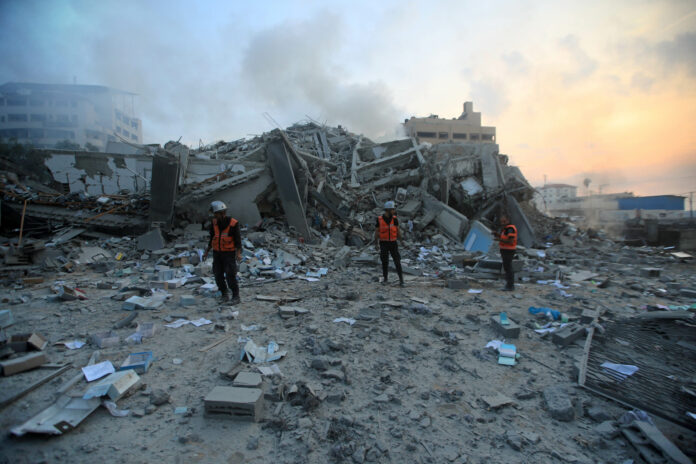By Hosea Parah, Abuja
The Embassy of the State of Palestine has reported a deepening humanitarian crisis in Gaza, now in its 377th day of conflict, describing the situation as a “US-backed Israeli genocide.” Ambassador Abdullah M. Abu Shawesh highlighted the severe conditions facing the Palestinian population and called for urgent international intervention.
The casualty figures have reportedly surpassed 42,227 Palestinians killed and 98,464 injured, with a significant number of victims being women and children. The ambassador drew attention to the dire circumstances in hospitals, where patients, including those severely injured in recent airstrikes, are unable to receive necessary medical care. Lise Grande, the US Special Envoy for Middle East Humanitarian Issues, has criticized Israel for obstructing vital food and medical supplies from reaching Gaza.
Shawesh also addressed the detention crisis in the Occupied West Bank, noting that over 11,300 individuals have been detained, including 9,392 under administrative detention, 425 women, and 745 children. He condemned the ongoing violence, highlighting the horrific images of civilians suffering in makeshift shelters.
In a poignant appeal, the ambassador referenced an open letter signed by 99 American medical professionals volunteering in Gaza, who described the unimaginable conditions faced by healthcare providers. They reported mothers feeding malnourished newborns with contaminated water and women undergoing surgeries without anesthesia, countering claims that hospitals are being used for military purposes.
He urged the international community to recognize the urgency of the situation, warning that inaction would normalize the ongoing violence and suffering. “The only thing necessary for the triumph of evil is for good men to do nothing,” the ambassador stated, calling on global leaders to take a stand against the atrocities faced by the Palestinian people.
As the humanitarian crisis escalates, the need for immediate assistance and intervention becomes increasingly urgent, prompting calls for the international community to reflect on the moral implications of inaction in the face of such suffering.

